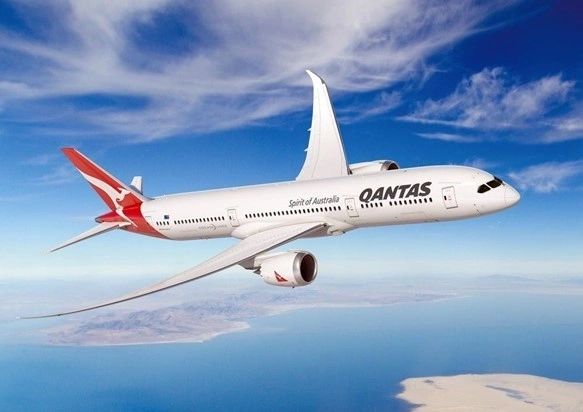
Photo credit: Qantas
A backlash over Qantas’ planned million-dollar incentives follows the airline’s illegal termination of thousands of workers while using $2 billion in taxpayer funds during the pandemic.
Massive flight cancellations, significant customer delays, and lost baggage are just some issues the airline has had months after the borders reopened.
Data from the Bureau of Infrastructure and Transport Research Economics shows that QantasLink had the most cancelled flights in April this year with 591, closely followed by Qantas with 426.
In May, one of every 13 Qantas flights was cancelled, amounting to 7.6 percent of the airline’s total flights, an increase over the previous month’s 5.1 percent percentage.
When Qantas issued a statement to the ASX in June, it said four senior executives would get stock awards totalling more than $4 million in addition to their salaries.
In addition to Vanessa Hudson, who will receive $1.15 million in stock, Jetstar CEO Gareth Evans will receive $1.22 million, Qantas CEO Andrew David will receive $1.15 million, and Qantas Loyalty CEO Olivia Wirth will receive $985,000 in stock.
If the executives satisfy their performance goals by August 2023, they will receive bonuses, but Mr Evans has since resigned.
The payments were criticised by the federal secretary of the Australian Licensed Aircraft Engineers’ Association, Steve Purvinas.
I find it appalling that people are getting bonuses the size of lotto winnings. Still, engineers like myself are being called greedy for asking for a pay increase after four years without one,’ Mr Purvina said to the Daily Telegraph.
“How can they pay any bonuses for airline luggage loss and other deficiencies?”
‘Salt in the wounds of fired employees’, said Transport Workers Union National Secretary Michael Kaine, echoing the remark.
In addition, some non-executive Qantas employees who fit the criteria and are still employed by the airline will be granted a bonus of 1,000 Qantas shares valued at around $5,000.
Over 10,000 Qantas employees were laid off in the early stages of the pandemic, followed by more than 2,500 in August 2021.
Covid stimulus payments totalled $ 2 billion for the company, as well.
As of May, the Federal Court found Qantas guilty of violating federal labour laws by outsourcing 2,000 ground crew positions, but the airline intends to appeal.
After the Covid crisis, Swissport and other service providers were hired to provide cheaper alternatives for the airline. The court decided that the airline had violated the Fair Work Act.
Many older men with 30 years of experience had no idea how to apply for a job online. According to one colleague, ‘So the older males were affected,’ the Today Show reported.
A trained worker has been “totally ignored,” the man told me.
‘Baggage that has sat unclaimed in storage rooms for weeks. Damage to aircraft has occurred. They’re independent contractors; Qantas doesn’t even hire them. Even the cost of employee transportation is not covered.
‘There is absolutely no reason even to consider staying there. Security and safety courses don’t teach you everything you need to know in minutes.’
There have been around 1,000 rehires at the airline since Easter, mainly in customer service positions.
Qantas’ spokeswoman justified that the executives’ bonus amounts were large enough.
They said that these ridiculous claims from the unions disregard the fact that we want to recognise the work of all Qantas and Jetstar employees if the Group successfully achieves its Covid-recovery programme.
The unions are aware that since 2015, our front-line employees have received more than $300 million incentives.’
In an interview with 2GB Radio host Ben Fordham, Mr Joyce discussed staff shortages and passenger interruptions, admitting that the airline failed over the Easter long weekend. Still, we’re returning to pre-Covid operational levels.
People want to travel, but we have two years of people locked up, so it’s flourishing at the moment,’ he told me. As far as he knows, domestic levels are back to pre-Covid levels or higher.
In the time prior to the arrival of Covid, things went as smoothly as possible. The aviation industry had a bad day during Easter. At the airport, we noticed long lineups and high levels of absenteeism, with some employees taking up to 50% of their time off. We now believe the call centres are fixed and better than before Covid.’
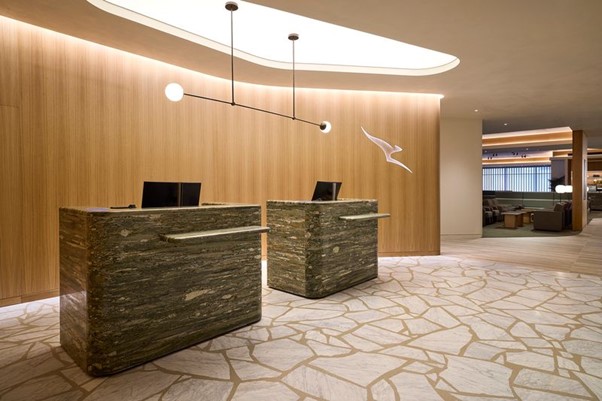 Qantas Unveils New Auckland International Lounge Ahead of Holiday Rush
Qantas Unveils New Auckland International Lounge Ahead of Holiday Rush 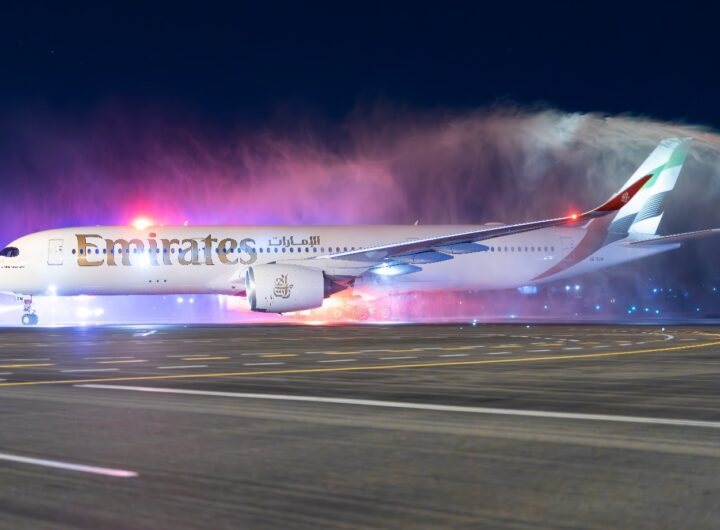 Emirates A350 Debuts in Adelaide with New Premium Economy, Boosting Connectivity and Comfort to Dubai
Emirates A350 Debuts in Adelaide with New Premium Economy, Boosting Connectivity and Comfort to Dubai 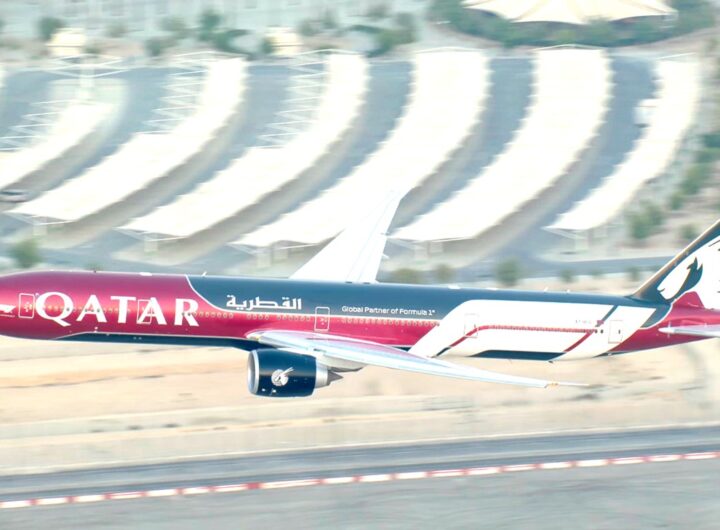 Qatar Airways’ New Formula 1 Livery Takes Off: Swizz Beatz–Designed Boeing 777 Tours the World After Qatar Grand Prix Debut
Qatar Airways’ New Formula 1 Livery Takes Off: Swizz Beatz–Designed Boeing 777 Tours the World After Qatar Grand Prix Debut 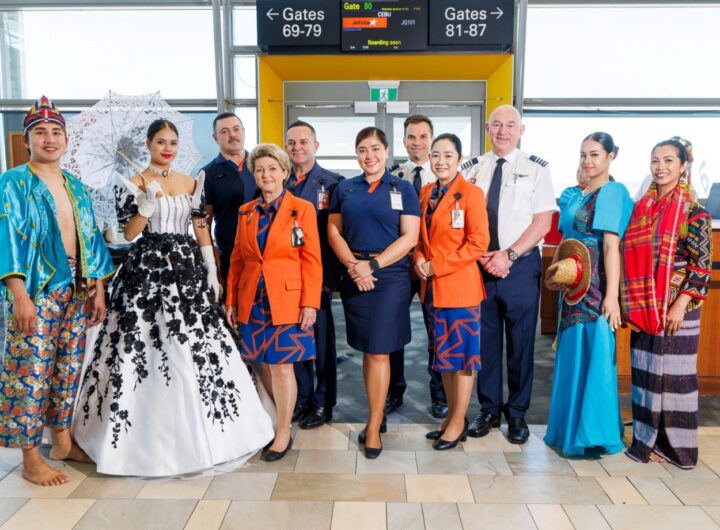 Jetstar Launches First Direct Brisbane–Cebu Flights: New Gateway from Queensland to One of the Philippines’ Most Beautiful Islands
Jetstar Launches First Direct Brisbane–Cebu Flights: New Gateway from Queensland to One of the Philippines’ Most Beautiful Islands  Qantas Elevates A380 First Class with New Fine Dining, Aesop Amenity Kits and Bollinger Champagne
Qantas Elevates A380 First Class with New Fine Dining, Aesop Amenity Kits and Bollinger Champagne 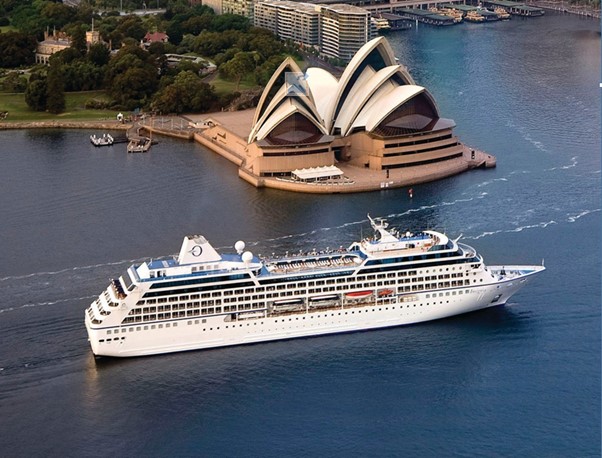 Oceania Riviera Makes Stylish Sydney Debut for First Australia Season
Oceania Riviera Makes Stylish Sydney Debut for First Australia Season  PONANT EXPLORATIONS GROUP Launches Holiday Offer with Extra 10% Saving on Nearly 190 Voyages
PONANT EXPLORATIONS GROUP Launches Holiday Offer with Extra 10% Saving on Nearly 190 Voyages  Explora Journeys Unveils “Endless Worlds” – A 128-Day Inaugural World Journey for 2029
Explora Journeys Unveils “Endless Worlds” – A 128-Day Inaugural World Journey for 2029  Regent Seven Seas and Global Hotel Alliance Elevate Pre-Cruise Luxury with The Concierge Collection 2027–2028
Regent Seven Seas and Global Hotel Alliance Elevate Pre-Cruise Luxury with The Concierge Collection 2027–2028 